Renal stones & Role of Diet and Hydration in Prevention of it.
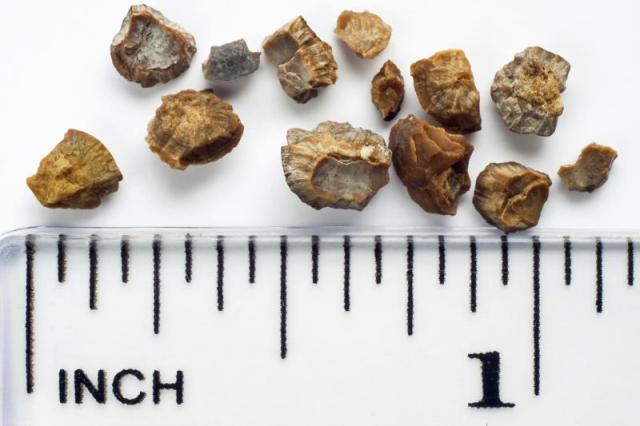
(credits)
Hello my fellow steemians, welcome to my new post in health series where i will be discussing common health problems prevalent in our communities.
Today we will be discussing about Renal stones and their relation to our diet, & what foods to be avoided in renal stones.
Renal stones(urolithiais) is a common health problem through out the globe and here are some data regarding it
Prevalence of renal stones is 4-5 % , i.e. in every 100 people 4-5 will develop renal stones .
Lifetime prevalence is 15 -25%, i.e. a person has 15-25 % chance that he will develop urolithiasis in his lifetime
It has high recurrence rate, if a person develops it once , there is 75 % chance he will develop it again within 20 years source
Diet is crucial in both prevention and good prognosis after treatment in urolithiasis. Even after the excellent treatment measures there is high recurrence unless diet habit is changed...but there are some misconceptions reagarding diet - Many people will advise you not to take calcium rich foods and meat products if you have renal stone, but it is not completely true...What food to take and what not to depends upon what type of renal stone you have!
Proper Hydration
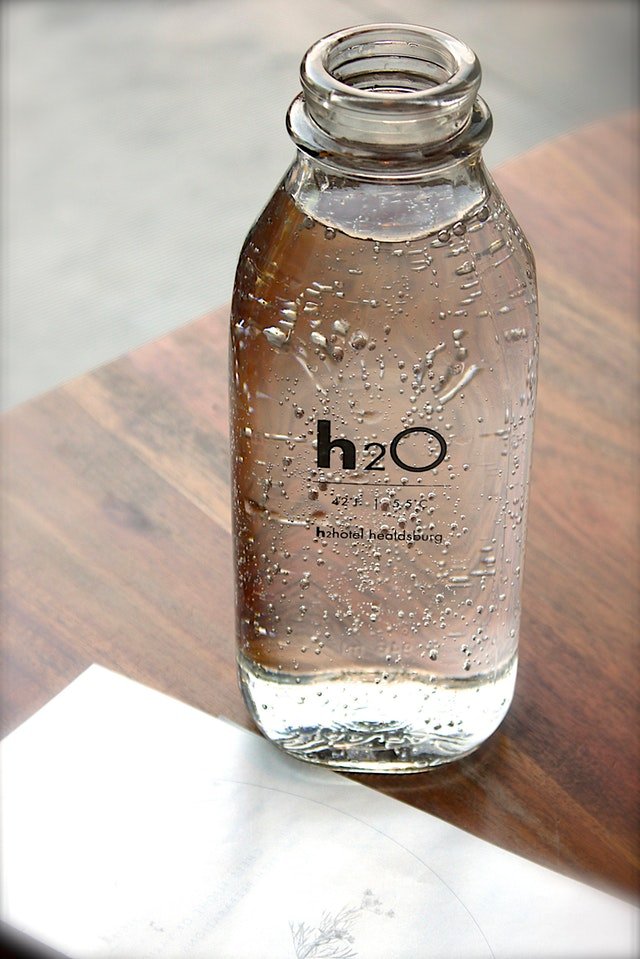
The most common factor predisposing to renal stone is dehydration, dehydration results in high concentration of solutes in urine which supersaturate and result into stone crystals..But how much water to take???.. they say plenty of water but you should know how much will be enough for you?? 2 litre? 4 litre? or 6 litres? ...
It does not make sense, it is the urine volume you should look upon not the amount of water you drink,.... it is said that the appropriate amount of urine in 24 hr should be about 2 litres.. the main aim is to make dilute urine..when urine becomes dilute enough there is less chance of supersaturation of solutes and formation of stones.... the required fluid intake depends on your body weight and amount of water lost excluding the urine.. in hot climate most of water is lost through sweat and lungs so fluid uptake should be high as compared to cold climate and it also applies to the amount of exercise you do- the more you do the exercise more water is lost through sweat and you will require some more fluid to make dilute urine...
The type of dietary habit you should follow depends on type of stone you have!
There are commonly 5 types of renal stones:
Calcium oxalate stone:
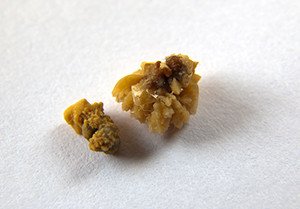
Struvite stone:
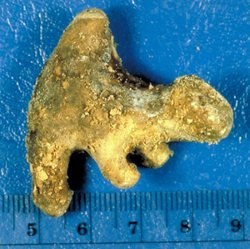
Uric acid stone :
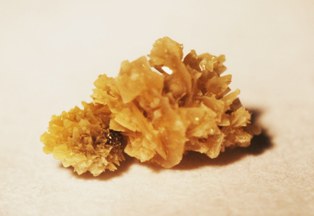
Cystine stones:
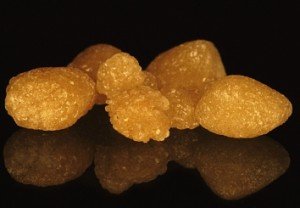
Xanthine stone:
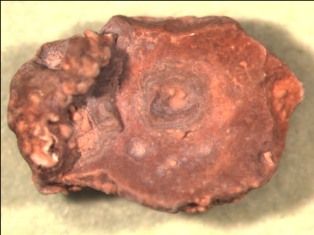
What type of food to be avoided in which stone?
Now you know different types of renal stones and their composition, lets talk about the different diets related them..
Calcium oxalate :
Milk and milk products have high calcium contents..straberries,plums,spinach and asparagus have high oxalic acid contents..so people already having high ca-oxalate level should avoid these..
Uric acid
Uric acid is formed from purines.. red meat, fish,offal are rich in purines which get metabolised to uric acid... high level of urate along with low tempr and ph precipitate to stones.. these people should also avoid alcohol as it is a aggravating factor..
cystine
Eggs, fish and meat & other compounds which are high in sulphur should be avoided by people having cystinuria.
In addition to that acidic urine aggravates the formation of oxalate, uric acid cystine xanthine stones but alkaline urine precipitates the formation of struvite stone....
Hence restriction only of calcium is not a proper major in other types of stones moreover its useless....so it all depends on what type of stone you have!!!

References:
Images:
[1],[2],[3],[4],[5]
Contents:
1.http://scialert.net/fulltext/?doi=ajdd.2017.54.62
2.Bailey & Love's Short Practice of Surgery, 26E
what about those suffering from kidney failure? what rocks aggravate the disease?
Nice question @emilnashar, kidney stones generally do not cause kidney failure but they aggravte urinary tract infection, and can cause hydeonephrosis..
why it is said kidney stones, if kidney failure is not caused by kidney stones.
Yes they can cause, but stats are low... They are called kidney stones because they are formed in the kidney. Primary kidney stones are formed in the kidney
whether to destroy the stone just by surgery or who has chronic only with dialysis?
there are different modalities for treatment of kidney stones, very small stones dissolve spontaneously w/o treatment, small ones require medical treatment and there are diff procedures for taking the stones out.
Great wealth of information! I now carry a water bottle with me all the time to remind myself to drink water throughout the day. Thanks for sharing this! :)
Thanks for reading. Yeah that's the best thing to do, proper hydration is important not only in preventing stones but also other health problems... :
Good information @himal. I notice that during the winter it more easy to have more urine that during the summer. I think season affects the amount of urine. Correct me if i am wrong.
You are absolutely correct.. Thats the reason we need less fluid intake in winter.. More urine volume means more dilute urine which prevents stone precipitation...
Than
winter we should also pay attention to the amount of fluid intake because during winter we are more easily stimulated to urinate even though we do not sweat. not so @himal?
Nice post @himal
thanks..
Thanks for the share.. Indeed helpful
Indeed.. thanks for reading..
Thank you!! Very informative!! resteem!
thanks :)
Thanks for sharing upvoted and followed
thank you very much .. :)
👌☺
Resteemed.
thanks..
To eliminate kidney stones it is important to follow a healthy diet and consume many herbal teas
yeah some herbal tea are also helpful in prevention as well treatment of small stones.. thanks for reading
This post recieved an upvote from minnowpond. If you would like to recieve upvotes from minnowpond on all your posts, simply FOLLOW @minnowpond